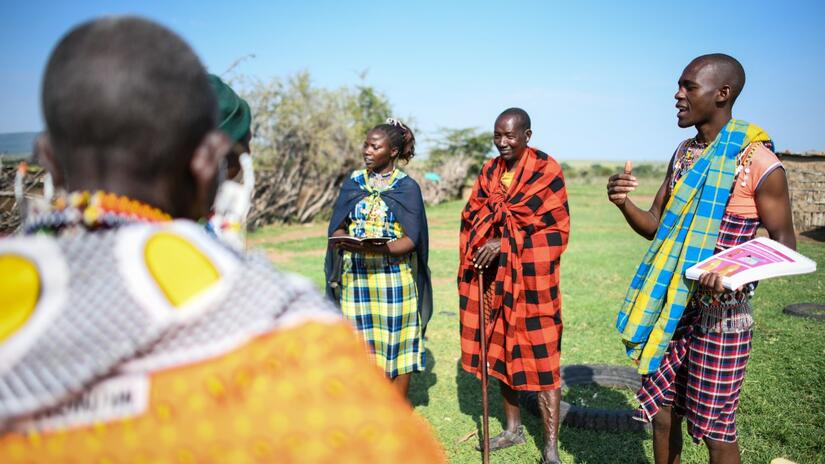Epidemic and pandemic preparedness
The IFRC and our National Societies engage and train people worldwide in epidemic preparedness and response. We help them prevent, detect and quickly respond to outbreaks—saving countless lives and promoting healthier communities.
What are epidemics and pandemics?
Epidemics and pandemics are some of the leading threats to global health security. They not only affect people’s health and well-being, they can also have a massive impact on livelihoods and entire societies too.
Epidemics are an unexpected increase of a specific illness within a community or region.
Pandemics are when an epidemic occurs worldwide, crossing international borders and affecting a large number of people.
In this century alone, the world has seen deadly regional outbreaks of ebola, Middle East respiratory syndrome (MERS) and yellow fever, among many others. And virtually every person on our planet has been affected by the direct or secondary impacts of the COVID-19 pandemic.
Our work
The IFRC and our member National Societies have long focused on helping people prepare for, respond to and recover from health emergencies.
We know that epidemics begin and end in communities. Communities are the first to notice when an unusual health event is occurring, and the last to stop feeling its impacts.
That’s why our work is grounded in local action: equipping communities and local first responders with the skills to recognize and respond to public health threats. For instance, it was a trained Somaliland Red Crescent volunteer who detected, reported and isolated the first case of COVID-19 in the country.
But we also engage with national authorities, the private sector, religious and business leaders and the media—because we know that all parts of society need to come together to keep us safe, now and in the future.
How we help people prepare
Preparing communities
Preparing first responders
Preparing business and society
Watch: How to prepare for epidemics
Community Epidemic and Pandemic Preparedness Programme (CP3)

Volunteers from the Kenyan Red Cross deliver a community awareness session
Photo: IFRC/Corrie Butler
Since 2017, the IFRC has been running a multi-country epidemic preparedness programme called CP3 with funding from the U.S. Agency for International Development (USAID).
Through CP3, we’re supporting communities, National Societies and other partners to prevent, detect and respond to disease threats. In doing so, they can play a significant role in preparing for future health risks.
CP3 is currently active in 7 countries: Indonesia, Uganda, Cameroon, Kenya, the Democratic Republic of Congo, Sierra Leone and Guinea. It was also previously active in Mali. You can read case studies from the project below.
We adapt the programme to each country’s health priorities, needs, risks and capacities. And we make sure it complements and builds on their existing national emergency response plans.
CP3 Case Studies
Case study: Measles immunization in the Democratic Republic of the Congo
Read more
Case study: Dengue in Indonesia
Read more
Case Study: One Health in action, Kenya Red Cross
Read more
Case Study: Community cholera epidemic preparedness in DRC and Cameroon
Read more
Case Study: Anthrax in Kenya
Read more
Case Study: Community-based surveillance in Indonesia
Read more
